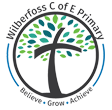{SECTION_MENU}
MFL - French
The Big Picture
At Wilberfoss, children will have access to authentic sources, French literature and have opportunities to be immersed in French culture, learning to be respectful and to break down cultural misconceptions. By the end of Year 6, all children will be confident listening to, speaking (developing their pronunciation), reading and writing in French. Each year, pupils will continue to develop their curiosity and their understanding of the world.
Intent
To support our teaching of French at Wilberfoss, we use the Language Angels scheme. Through this we are able to meet the expectation of the National Curriculum as children learn French through speaking, listening, reading and written activities.
By time our pupils leave us at the end of Year 6, we want them to have developed their confidence in speaking, listening, reading and writing in French.
Using Language Angels, we have been able to sequence our units of work to ensure progression throughout Key Stage 2. Speaking and listening skills are developed first as these play a pivotal role in the understanding and learning of French. Writing is introduced after that in each year group. Children will be expected to write in French throughout each year group and in full grammatically correct sentences by the end of Year 6.
Implementation
Throughout each of our French units, children are provided with regular opportunities to listen, repeat, talk , read and write in French.
By using the Language Angels scheme, KS2 teachers are able to support children in learning the required vocabulary and correct pronunciation. Each lesson in the scheme has audio recordings of the vocabulary being learnt and good quality resources to support children to develop their listening, speaking, reading and writing of French. Children are also taught songs in French to support their learning.
Children begin their French lessons in Year 3 by learning some key vocabulary such as asking someone what their name is and saying their own name, numbers 1 to 10 and some colours. As children progress through the scheme, they widen their French vocabulary enabling them to hold longer and more complex conversations. Written work and reading starts off with words and short phrases in Year 3 and builds up to being able to read and write short passages linked to their unit of work in Year 6.
To practise speaking in French, children begin by repeating what their teacher has said. This might be as a class, a small group or individually if the child is confident. There are also role play opportunities built into our units of work, such as ‘at the café’, where children are able to act as if they are buying food and drinks in a café or serving customers.
Impact
Teachers make regular assessments of each child during their weekly French lessons. All children are encouraged to participate as much as possible in lessons so that they build their confidence. Where children are struggling either with a lack of confidence or not understanding their work, teachers provide appropriate intervention and support. Written, reading and listening tasks are all recorded in our French exercise books. These are started in Year 3 and go up through KS2 with the children. Through doing this, we are able to see clear progression across each year group. Speaking tasks are regularly recorded to provide evidence of what the expected standard is for each unit of work.
As with our other foundation subjects, Teachers assess whether children are on track or not at the end of each term and record the assessments on Insight. To support these judgements for French, we use end of unit assessments provided by the Language Angels scheme. These assessments consist of a reading, speaking, writing and listening activity for each child to complete.
 Wilberfoss C of E Primary School
Wilberfoss C of E Primary School